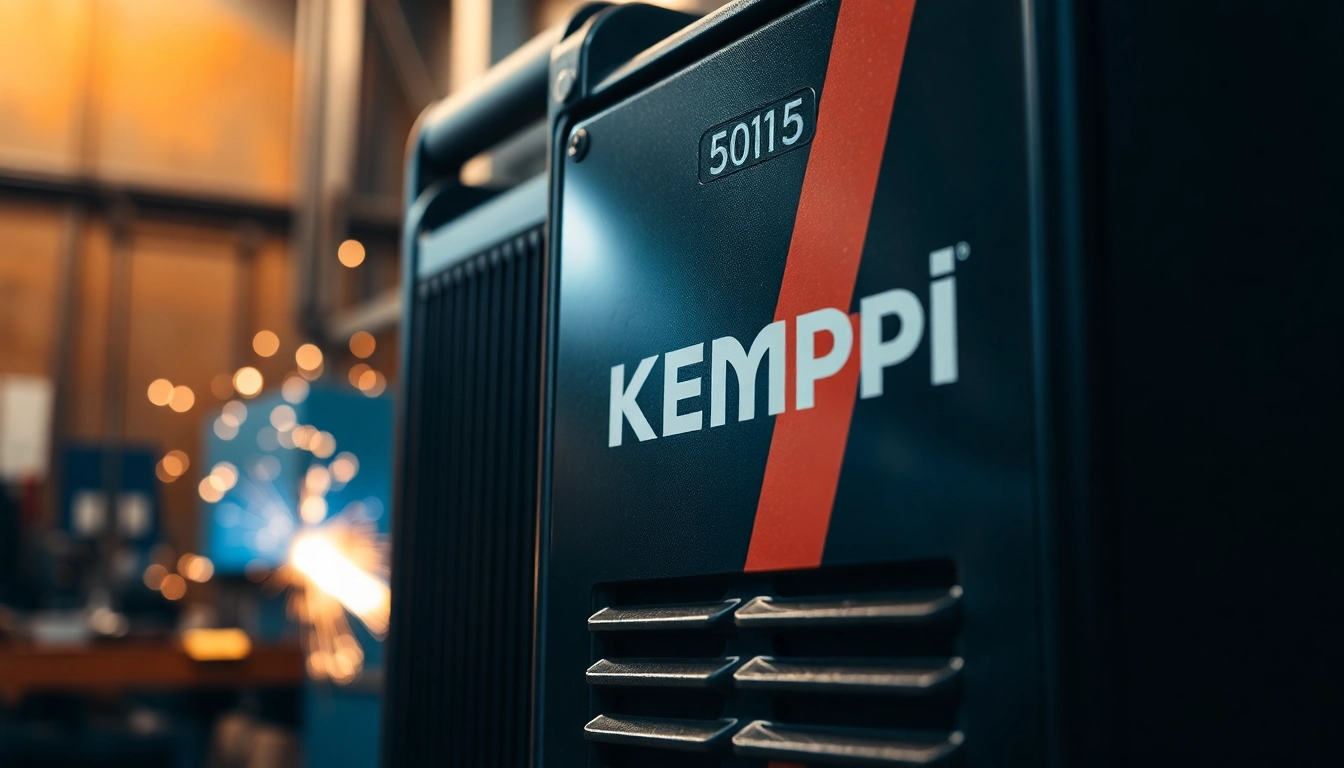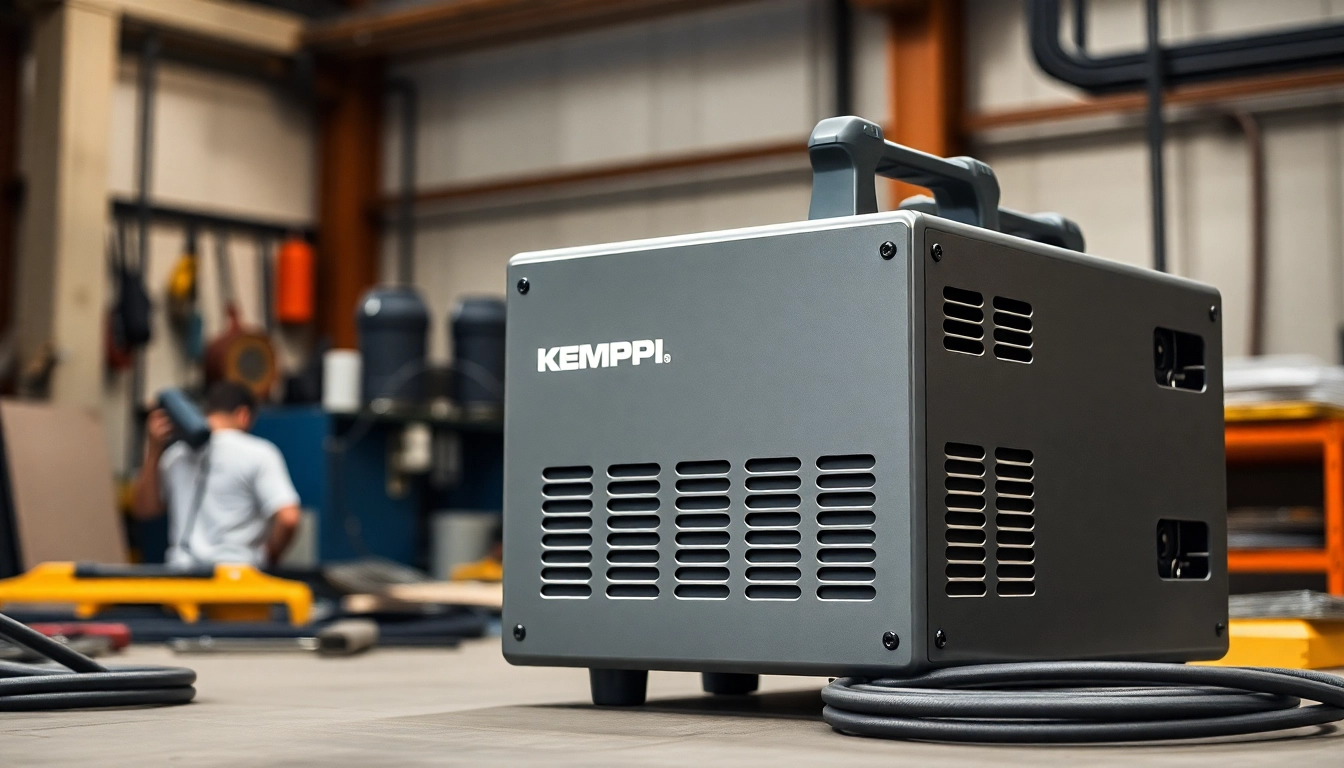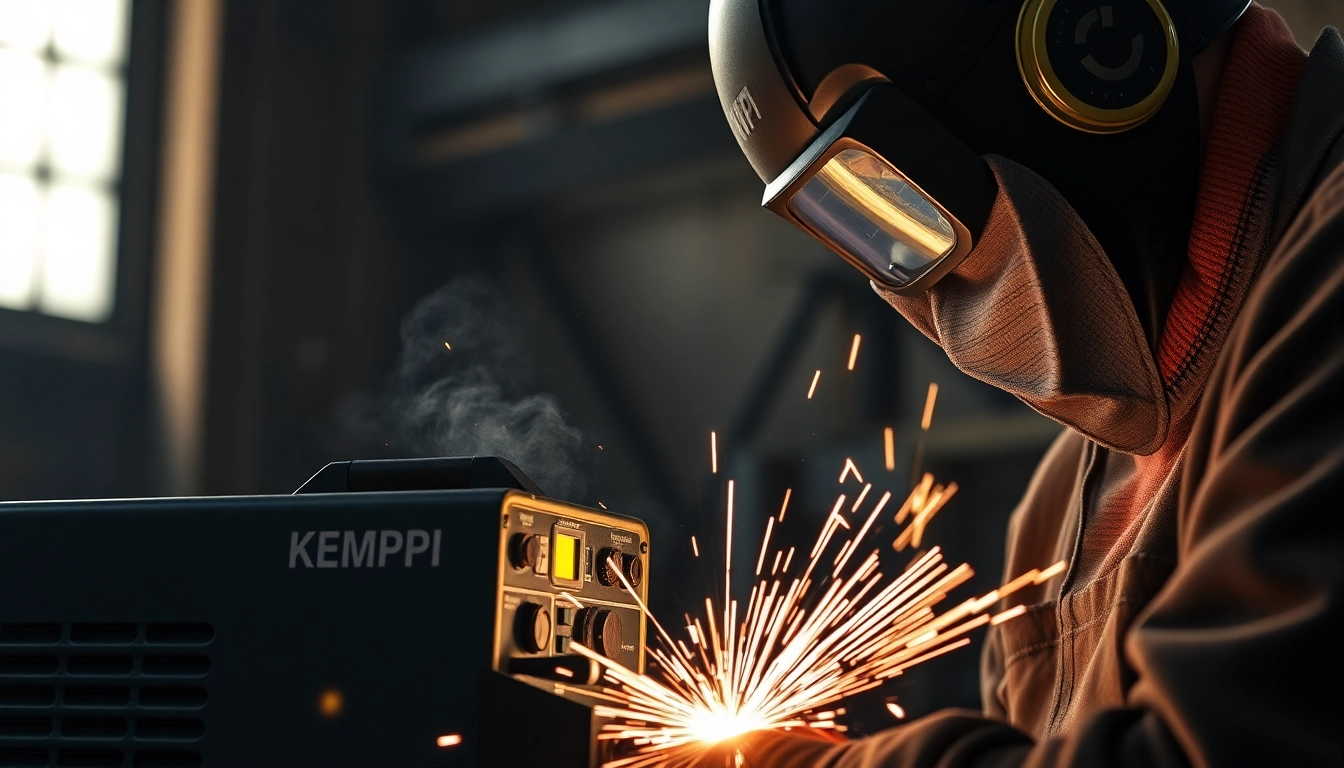
Introduction to Kemppi Welders
Welding is an essential skill across various industries, from construction to manufacturing, and the choice of equipment can significantly impact the quality and efficiency of the work. Among the numerous brands available, kemppi welders stand out for their exceptional craftsmanship, innovative technology, and reliability. This article aims to provide a comprehensive overview of Kemppi welders, their history, key features, types, and practical advice for choosing, maintaining, and utilizing these important tools effectively.
What Are Kemppi Welders?
Kemppi welders are high-quality welding machines manufactured by Kemppi Group Oy, a Finnish company that has been at the forefront of the arc welding industry since its inception in 1949. Kemppi specializes in delivering solutions that cater to a range of welding applications, including MIG, TIG, and multiprocess welding. Known for their user-friendly design and advanced features, Kemppi welders are favored by both professionals and hobbyists around the world for their superior performance and durability.
History and Development of Kemppi
Founded by Lauri Kemppi, the company began its journey in a small workshop in Lahti, Finland. Over the decades, Kemppi has demonstrated a commitment to innovation, introducing pioneering technologies such as the first fully portable MIG welder and a unique pulse welding method. The company’s dedication to research and development has led to numerous patents and products that have shaped the welding landscape. Today, Kemppi continues to grow its reputation on a global scale, with production facilities not only in Finland but also in Chennai, India, to better serve its diverse customer base.
Key Features of Kemppi Welders
Each Kemppi welder is designed with specific features that enhance functionality and user experience. Some key features include:
- Advanced Technology: Kemppi welders utilize cutting-edge technology, such as the FastMig and Minarc ranges, which offer exceptional arc stability, monitoring systems, and power efficiency.
- User-Friendly Controls: Many models feature intuitive control panels and settings that allow welders to easily adjust parameters for different materials and processes.
- Portability: Numerous Kemppi models are designed for portability, ensuring they can be used in various environments, from workshops to remote job sites.
- Durability: Built to withstand the rigors of industrial use, Kemppi welders are known for their robust construction and long-lasting components.
Types of Kemppi Welders
Kemppi offers an extensive range of welders designed to meet different needs and preferences. Understanding the various types available is crucial for selecting the right welder for your specific applications.
MIG/MAG Welders
MIG (Metal Inert Gas) and MAG (Metal Active Gas) welding is widely used in construction and manufacturing due to its speed and versatility. Kemppi’s MIG/MAG welders, like the FastMig series, are engineered for optimal performance with gas mixtures, enhancing welding speed while producing clean, high-quality welds. They feature adjustable settings for wire feed speed, voltage, and other parameters, allowing users to customize their welding experience according to the material and thickness.
TIG Welders
TIG (Tungsten Inert Gas) welding is celebrated for its precision and ability to weld thin materials. The Kemppi MinarcTIG series offers advanced TIG welding capabilities, empowering welders to manage heat input meticulously. These machines provide smooth arc control and feature adjustable pulse settings, making them ideal for delicate work such as automotive repairs and artistic metal fabrications.
Multiprocess Welders
Multiprocess welders are versatile machines capable of handling various welding techniques, including MIG, TIG, and stick welding, within a single unit. Kemppi’s MASTERMIG and MINARC series exemplify this adaptability, allowing welders to switch processes quickly without the need for multiple machines. This feature not only saves time but also space, making it a practical choice for workshops with limited room and for mobile jobs.
Choosing the Right Kemppi Welder for Your Needs
Selecting the perfect welder for your requirements requires careful evaluation of several factors. Here’s how to assess your needs effectively:
Assessing Your Welding Requirements
The first step in choosing a Kemppi welder is to assess the features you require based on your unique welding tasks. Considerations include:
- Material Types: What types of materials will you be welding? For thicker metals, a MIG welder may be preferable, while thin materials might require a TIG unit.
- Welding Processes: Do you need to perform multiple welding processes? If so, a multiprocess welder would be beneficial for versatility.
- Project Scope: Will your projects be large-scale industrial tasks or small repairs? This impacts the power and portability you’ll need.
Comparing Kemppi Models
After assessing your needs, it’s vital to compare specific Kemppi models to determine the best fit. Review detailed specifications including:
- Input power ratings for different models, ensuring you select one compatible with your power supply.
- Welding capacity or duty cycle, which indicates the amount of use the machine can handle before overheating.
- User feedback and expert reviews can also provide insights into performance and reliability across various applications.
Price Considerations for Kemppi Welders
Budget is an important aspect of your welder decision. Kemppi welders are available at different price points, often reflecting their capabilities and features. It’s advisable to define your budget and align it with your required specifications. While cheaper options may be tempting, investing in a quality machine often results in greater long-term savings through reliability and better performance.
Maintenance Tips for Kemppi Welders
Routine Maintenance Procedures
Establishing a routine maintenance schedule helps prevent potential issues from escalating. Recommended procedures include:
- Cleaning: Regularly clean the welder’s exterior and interior components to prevent dust and debris build-up.
- Inspection: Regularly check cables, hoses, and connections for signs of wear or damage, replacing them as necessary.
- Calibration: Ensure that the machine is calibrated correctly to maintain welding accuracy.
Common Issues and Troubleshooting
Even the best machines can encounter issues. Familiarize yourself with common problems:
- Arc Stability Issues: Often caused by improper settings or worn-out parts. Adjusting voltage and checking consumables may help resolve this.
- Feed Problems: A clogged or damaged wire feed can lead to inconsistent performance. Regularly inspect and clean the feeder.
Extending the Lifespan of Your Welder
To maximize the lifespan of your Kemppi welder:
- Maintain a clean environment around your welder to reduce exposure to harmful contaminants.
- Store the welder in a dry, protected area when not in use to avoid rust and damage.
- Use only quality parts and consumables as specified by Kemppi to avoid performance issues and maintain warranty coverage.
User Reviews and Case Studies
User feedback and case studies provide valuable insights into the real-world performance of Kemppi welders.
Customer Experiences with Kemppi Welders
Anecdotal evidence from daily users consistently highlights the build quality and efficiency of Kemppi machines. Many users rave about the seamless welding experience, noting that the machines handle different materials with exceptional ease. Online forums and welding communities reveal testimonials that speak to the versatility and reliability of Kemppi equipment across various industries.
Notable Projects Using Kemppi Equipment
In several high-profile projects, Kemppi welders have been instrumental in achieving precise welding results. For instance, in the automotive industry, a major manufacturer utilized the FastMig series for manufacturing chassis components, praised for its speed and bead quality. These real-world applications reinforce Kemppi’s position as a trusted choice among industry leaders.
Comparison with Competitors in the Welding Industry
While many welding equipment manufacturers vie for market share, Kemppi is often compared with brands like Lincoln Electric and Miller Electric. User reviews suggest that Kemppi outshines competitors in terms of ergonomics and user experience while providing excellent technology like adaptive arc control, making them a preferred choice for professionals.







